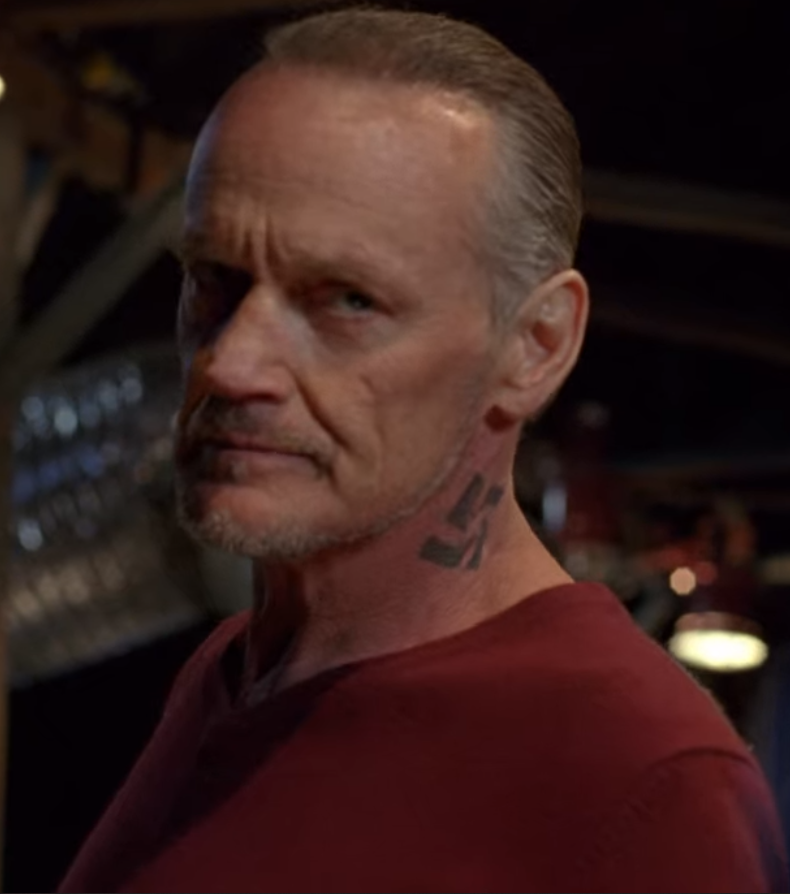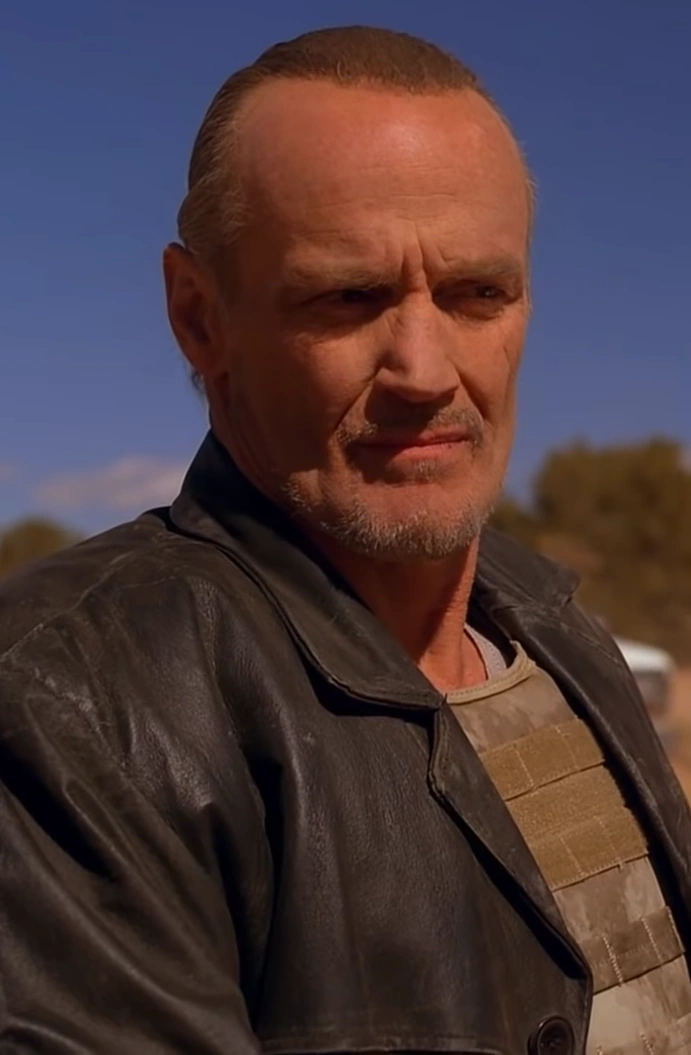Breaking Bad: Why Walt Eliminated Jack's Gang - Explained!
Why did Walter White, the chemistry teacher turned kingpin, orchestrate the brutal takedown of Jack Welker's gang at the culmination of Breaking Bad? The decision wasn't merely about revenge or eliminating a threat; it was the culmination of a fractured moral compass, a desperate bid for control, and the final, destructive act of a man consumed by his own ego.
Jack Welker, known as "Uncle Jack," emerges as a formidable antagonist in the fifth season of Breaking Bad. He is the leader of a white supremacist gang operating in the American Southwest, a cold-blooded enforcer who embodies pure, unadulterated evil. Welker, played with chilling effectiveness by Michael Bowen, is less a complex character and more a force of nature, a personification of the ruthlessness that had come to define Walt's descent into the criminal underworld. The character's impact on the series stems not just from the violence he perpetrates but from the stark contrast he provides to Walt's own evolving persona. Where Walt was once driven by a desire to provide for his family and a yearning for recognition, Jack's motives appear simpler and more primal: dominance, violence, and the callous disregard for human life. The character also served as an antagonist in the 2019 sequel film El Camino: A Breaking Bad Movie.
Welker's compound, a stark and desolate landscape in the South Valley, becomes the central hub for his operations. This compound houses the gangs meth lab, complete with a quonset hut, a clubhouse, and the infamous pit where Jesse Pinkman was held captive. The location itself is a testament to the gang's detachment from society a place where they are free to operate with impunity, hidden from the prying eyes of law enforcement and the moral constraints of the outside world. It's here that the gang, after murdering Declan and his crew, steals the methylamine and lab equipment they were using, further solidifying their criminal enterprise. The compound becomes the site of several pivotal moments, including Walt's final, explosive confrontation with the gang, solidifying its significance in the narrative.
| Full Name | Jack Welker (Also known as "Uncle Jack") |
| Portrayed By | Michael Bowen |
| Date of Birth | 1958 (Approximate - based on actor's birthdate) |
| Occupation (in the show) | Leader of a White Supremacist Gang, Criminal |
| Notable Relationships | Nephew: Todd Alquist |
| First Appearance (Breaking Bad) | Season 5 |
| Last Appearance (Breaking Bad) | Season 5 |
| First Appearance (El Camino) | Appears in flashbacks |
| Last Appearance (El Camino) | Appears in flashbacks |
| Known For | Ruthless and brutal criminal, responsible for several murders, including that of Hank Schrader |
The introduction of Jack's gang marks a significant turning point in the series. Their arrival complicates the already precarious balance of power that Walt has cultivated. Initially, Walt enlists the gang's services, hiring them to eliminate inmates in prison who could potentially testify against him. However, this alliance is built on shifting sands. The gang is not bound by any code of loyalty or morality; they are opportunistic, greedy, and willing to betray anyone for their own gain. This inherent instability is a constant threat to Walt. The gang's actions, particularly the murder of Hank Schrader in the "Ozymandias" episode, demonstrate their willingness to cross any line. This act of brutality solidifies Jack's role as a primary antagonist and underscores the utter depravity that Walt has become entangled in.
Michael Bowen's portrayal of Jack Welker is arguably one of the most memorable villainous performances in the series. Bowen brings a cold, understated menace to the role. He doesn't rely on grandstanding or theatrics; instead, he conveys a sense of quiet ruthlessness that is far more terrifying. Bowen's ability to project this menace with so few words, his chilling stare, and his deliberate movements, all contribute to Jack's unsettling presence. Fans of Breaking Bad often discuss and admire Bowen's portrayal, acknowledging the impact and the fear Jack invokes in the viewer.
The relationship between Walt and Jack's gang is complex. While they initially collaborate, their interests eventually diverge. Walt's control, always fragile, begins to unravel as he realizes that the gang is more than just a tool; they are a potential threat to his survival and his carefully constructed empire. The tension reaches a boiling point, ultimately leading to the climactic showdown where Walt, utilizing his genius for strategy and his knowledge of explosives, orchestrates the demise of Jack and his entire crew. This moment is not just an act of revenge; it's a desperate attempt to regain control and to eliminate those who threaten his existence and legacy. Walt's meticulous preparation his machine gun, his knowledge of the compound, and his calculated actions underscore the methodical nature of his transformation into Heisenberg.
- Google Search Fails No Results Try These Fixes
- Breaking Lavar Ball Undergoes Foot Amputation Details Updates
The contrast between Walt and Jack highlights the central themes of Breaking Bad. Walt's journey, initially driven by a desire to provide for his family, gradually transforms into a ruthless pursuit of power and control. Jack, on the other hand, embodies the amorality that lies at the heart of the criminal underworld. He is a man devoid of conscience, a force of pure evil that stands in stark contrast to Walt's more complex and evolving character. Walt's relationship with the gang challenges his ego as a crime lord, and their actions push him to the brink. Jack's unbridled evil serves as a mirror, reflecting the darkness that Walt has embraced. The elimination of the gang is, in some ways, a necessary act for Walt to attempt to reclaim some semblance of control over his own destiny, even if that control is fleeting and ultimately self-destructive.
Jack's gang's presence also allows for the exploration of the themes of violence and its consequences. Their actions have a ripple effect, impacting the lives of numerous characters and leaving a trail of destruction in their wake. The gang's brutality serves as a constant reminder of the high stakes involved in Walt's criminal enterprise and the precarious nature of his existence. The death of Hank Schrader, in particular, is a pivotal moment. It shatters the illusion of Walt's control, and leaves a significant impact on the narrative. The incident underscores the gangs willingness to commit extreme acts and its utter disregard for life.
In "El Camino: A Breaking Bad Movie," Jack Welkers presence continues to cast a shadow. Through flashbacks, the audience sees more of his brutality and the lasting impact his actions had. Even after his death, his legacy persists, influencing the events of the film. The sequel underscores the lasting damage Jack and his gang inflicted on the characters and the world of Breaking Bad.
The decision to eliminate Jack's gang at the end of Breaking Bad is therefore multifaceted. It is a consequence of Walt's actions and his descent into villainy. It is also a desperate attempt to regain control in a world that is spiraling out of his control. It is a moment that showcases the final, destructive act of Heisenberg, driven by a desire for dominance and a twisted sense of legacy. The final showdown is a dramatic conclusion to the conflict, demonstrating the full extent of Walt's transformation and the devastating consequences of his choices. The act is a testament to the ruthless nature of the criminal underworld, and the choices made in that world.
The gangs activities extend beyond mere violence. They were also involved in the manufacture and distribution of methamphetamine. After eliminating Declan and his crew, they seize their laboratory and meth equipment. The gang then began to refine the drug for profit. This further intensifies the conflict, as they become a direct threat to Walt's business and his ambition. The gangs presence allows the narrative to explore the destructive impact of the drug trade on the wider community.
The gang's compound becomes a microcosm of the criminal underworld, demonstrating the brutality and moral decay that pervade it. It underscores the dangerous nature of Walt's chosen path and the choices he makes along the way. Their actions further demonstrate the shows exploration of power, control, and the price of ambition.
The events of the "Ozymandias" episode, the gang murders of Hank Schrader, is a turning point and serves as a catalyst for the final confrontation. It removes a major impediment in Walt's way and propels him toward this ultimate confrontation. This act underscores the gang's ruthlessness and highlights the perilous nature of Walt's lifestyle. This action forces Walt to confront the true consequences of his actions and sets him on the path to eliminating those who oppose him.
Walt's actions are ultimately a final desperate play for control and a bid to secure his future, but in doing so, he reveals the full extent of his descent into darkness. In the end, while he may die peacefully, he leaves behind a trail of destruction that cannot be erased.



Detail Author:
- Name : Claude Anderson
- Username : eldon73
- Email : jwalsh@lockman.com
- Birthdate : 2003-07-17
- Address : 534 Medhurst Mountain Reymundochester, TN 38280-1381
- Phone : 1-352-306-0211
- Company : Jacobi, Lueilwitz and Hand
- Job : Board Of Directors
- Bio : Repudiandae qui enim eaque repellat nihil qui quia. Cupiditate pariatur assumenda est iste ipsum et. Nam deserunt sed architecto voluptas quam atque.
Socials
tiktok:
- url : https://tiktok.com/@muellern
- username : muellern
- bio : Velit mollitia rerum tenetur placeat.
- followers : 5133
- following : 2373
linkedin:
- url : https://linkedin.com/in/neva3097
- username : neva3097
- bio : Sint nemo non id voluptatem ut qui suscipit.
- followers : 270
- following : 951